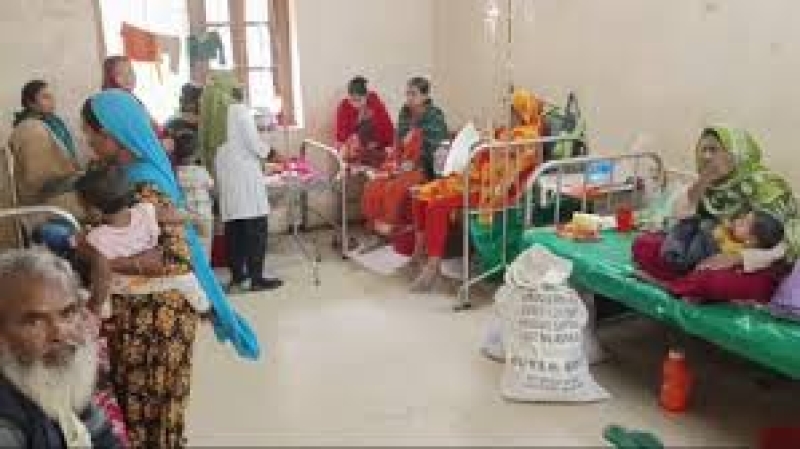- Referendum Sees 4.82cr ‘Yes’ Votes, Turnout 60.84% |
- EC Issues Gazette for 297 Newly Elected MPs |
- 9-year-old boy beaten to death over betel nut theft in M’singh |
- BNP fast-tracks cabinet plans after resounding victory |
Diarrhea Cases Surge in Manikganj, Children Most Affected

Manikganj is experiencing a significant rise in diarrhea cases, with children being the most affected. The 250-bed district hospital's diarrhea unit, with just 20 beds, is overwhelmed by the influx of patients.
Due to overcrowding, many patients are being treated on the floor, adding pressure on hospital staff. The number of patients has steadily increased since October, with 359 cases recorded in that month, 355 in November, and over 600 cases from the beginning of December until December 23.
Alpana Akter, in charge of the diarrhea ward, said that around 20 patients, mostly children, arrive daily, often with two or three family members, further exacerbating the space shortage. Some patients have been forced to seek treatment at private clinics due to lack of space.
Shiuli Begum, the mother of 4-year-old Akib, who is currently admitted, described his symptoms of vomiting and diarrhea. While his condition improved after two days of treatment, his symptoms persisted. She also expressed concerns about the ward's unsanitary conditions, which may pose additional risks to patients and caregivers.
The hospital is facing a shortage of essential medicines, forcing families to buy supplies from outside. Dr. ABM Touhiduzzaman, the residential medical officer (RMO), confirmed that the unit is treating 30 to 40 patients daily despite having only 20 beds. He acknowledged that overcrowding has worsened sanitary conditions.
Hospital staff, however, are continuing to provide care despite the pressure. While there is enough food saline and paracetamol, a lack of Ciprocin and cholera saline means patients must purchase these medications elsewhere.
Pediatric specialist Dr. Nilufar Yasmin noted that cold-related illnesses are contributing to the rise in child patients. She attributed the surge in cases to rotavirus infections, which are more common in winter, and advised maintaining hygiene, keeping children warm, and avoiding cold foods.
Hospital Superintendent Dr. Baha Uddin stated that measures are being taken to manage the patient overflow, including transferring some diarrhea patients to other wards. However, the situation remains critical due to space constraints and ongoing medicine shortages.

